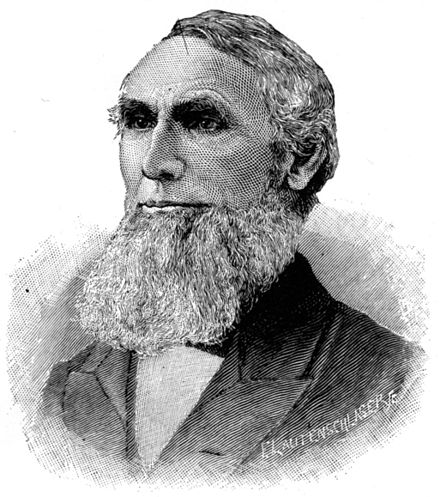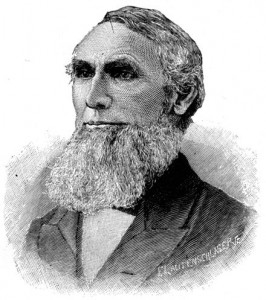Aaron Lufkin Dennison, watchmaker pioneer and 19th century business innovator, was recently highlighted on Steven Johnson’s super cool show, “How We Got To Now.” Dennison’s ability to take two different elements and combine them with a slight twist is an excellent example for all who seek to innovate and practice design thinking.
As Steve Jobs himself said, “Creativity is just connecting things. When you ask creative people how they did something, they feel a little guilty because they didn’t really do it, they just saw something. It seemed obvious to them after awhile.”
I wonder if Jobs knew much about Dennison? I hope he did. Both men excelled in such similar arenas and in such similar ways.
Here are three mindsets from one of America’s unsung innovators we can all learn from and put into practice.
Observation as a Daily Practice
Even from an early age, Dennison was keenly observing, reflecting and applying his discoveries to the world around him.
As a teen, Dennison worked odd jobs around his home in Freeport, Maine. One of those jobs was helping out in his father’s cobbler shop. After watching his father laboriously cut individual soles for each pair of shoes, he made a suggestion.
Why not cut the necessary leather for popular shoe sizes all at the same time? Same action, same cut, just batch the material and do it in bulk?
I can see his father going full facepalm thinking, “How did I never think of that?…”
Through simple observation, reflection and an openness to put a spin on a conventional routine, Dennison’s father’s shop became much more efficient.
Understanding Our Natural Talents
The young apprentice understood his innate talents. However, just as important, he continued developing those talents to better serve his ambitions and fulfill his goals.
Dennison turned down a comfortable partnership at an established clockmaker to continue honing his fine machinery skills and expertise.
While taking the comfortable promotion would have made sense to many, he chose a less orthodox path. His talents and passions required more of him.
Understanding and leveraging one’s innate talents continues to be one of the strongest indicators I find in successful people.
Dennison was not only in-tune with his natural aptitude for machinery, but he also took the next crucial step. He sought out the best in his field (master watchmaker, Tubal Howe) and continued learning, training and improving his skills by his mentor’s side.
Keep Asking Questions
Dennison kept asking questions. Why? Why not? Why not now? Why not here?
He later observed how an armory in Springfield, Massachusetts made guns more efficiently using interchangeable parts.
However, once again, he didn’t simply appreciate the moment, shrug his shoulders and move along. He applied it to his own arena of expertise—watchmaking.
In the process, he created the first production line for mass-produced watches. Cost of the watch? $13.00.
Hundreds of thousands of these were sold during the Civil War. Common soldiers and farmers could now afford their own pocket watch. For the first time in history, precise time-keeping wasn’t just for aristocrats.
Until Dennison came along, a mass-produced pocket watch was never even a consideration by the craftsmen of the day—too many tiny parts were required, too much precision craftsmanship was necessary. Yet, he kept asking questions, tinkering, learning and asking more questions until he had created something never thought possible.
From Knowledge to Action
Commit to more thoughtfully observing all that’s around you.
Reflect on those observations. Take five minutes and jot down a few notes. Weigh your reflections, and put those potential revelations to the test.
Consider Dennison’s inquisitive approach to life and his impact on society. By creating the mass-produced pocket watch, he literally changed the way we view, understand and use time.
What idea is percolating inside you right now that might benefit from some focused observation, reflection and a little 19th century polishing?
Take a few pointers from the guy who took time itself and found a way to give it to the common man. You never know.
One day you may be channeling your inner Aaron Dennison, the next day you’re pitching Mark Cuban and Daymond John on Shark Tank.
Happens every day…
*For more fascinating stories about innovative pioneers like Dennison, check out Johnson’s excellent book (same name as his PBS show), “How We Got To Now.” Well worth it.
Please send an email and say hey at hello@strengthslauncher.com if you make a change inspired by Mr. Dennison.
Share this Post




